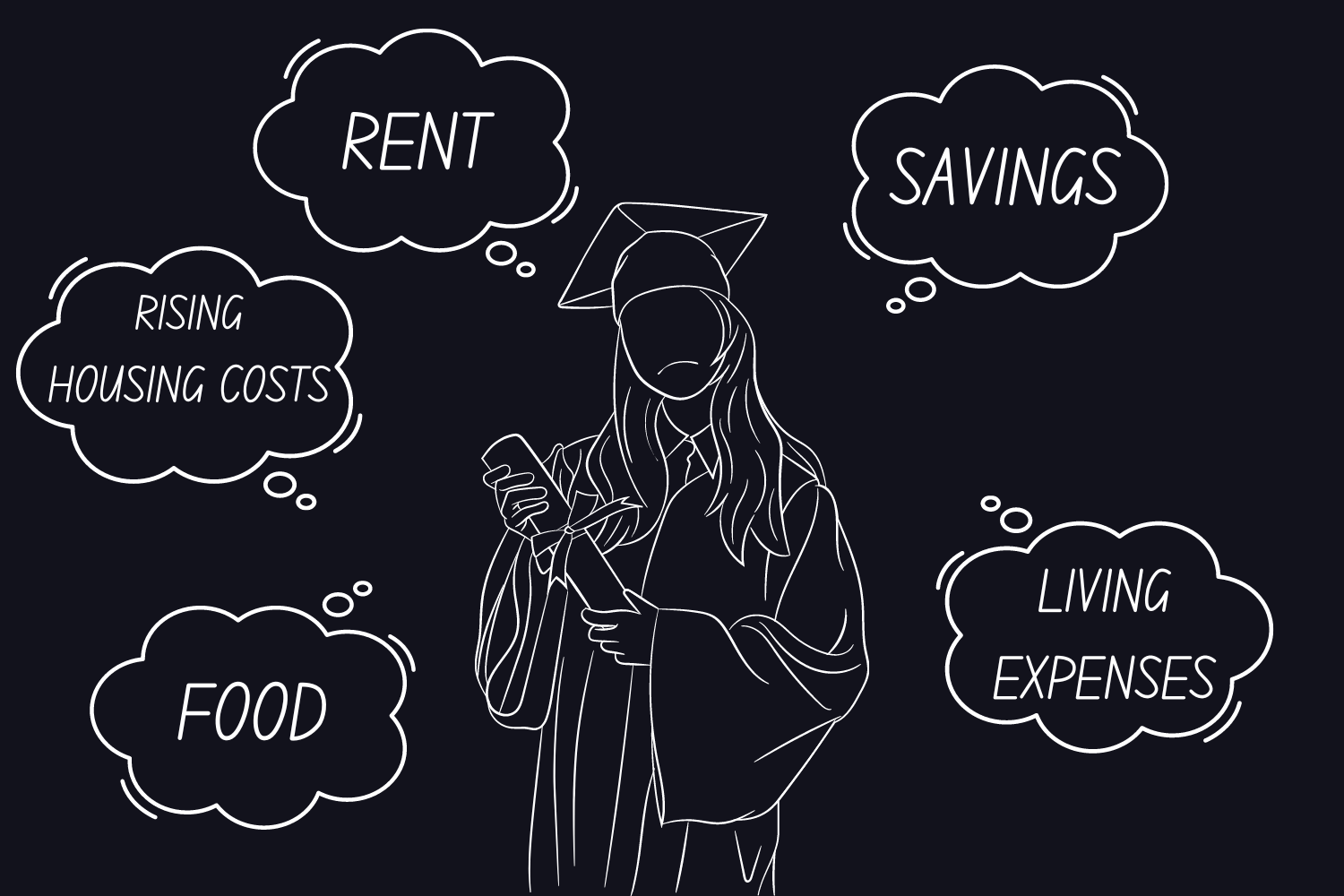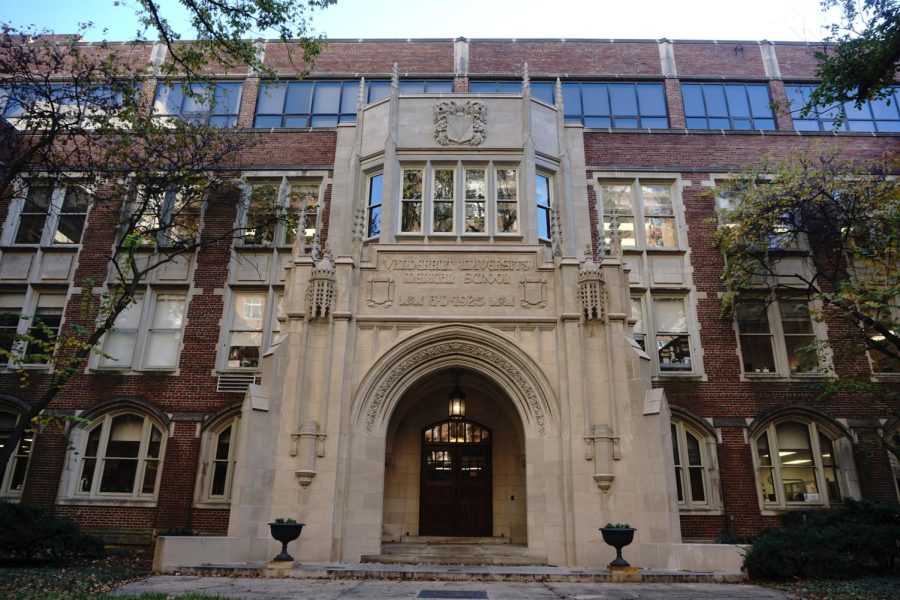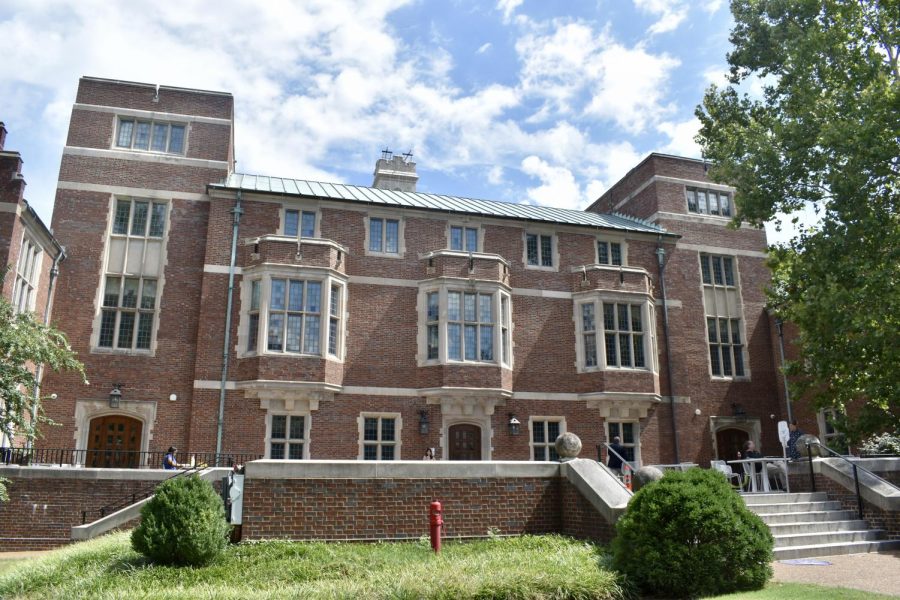During my hunt for an apartment this summer, I was hit with a brutal reality check: Nashville is already expensive and getting worse with each passing moment. Even with a $6,000 stipend, finding something that fit within my budget and left me with enough money to cover other expenses took weeks of searching. Even after finding an apartment that I could afford, I’m still spreading myself thin in many respects. This impossible quest for affordable housing got me thinking: With my stipend being the rough equivalent of two months’ pay for a graduate student, how do they fare under such conditions for 4-5 years?
The answer is simple: They can, but it’s not sustainable. Per the MIT living wage calculator, the costs to cover the bare minimum expenses for a single adult in Davidson County amount to $42,718 per year. Yearly stipends for graduate students currently range from $34,000 to $38,000 depending on one’s department, leaving close to a $9,000 gap between what is considered a liveable wage and what graduate students are given. This leaves no room for graduate students to save or invest money. This then forces them to turn to loans when their resources run dry.
Although still lacking in certain areas, peer institutions are doing better than Vanderbilt to ensure that doctoral students are fairly compensated. At Duke, for example, doctoral students are paid $40,000 for the academic year, which only creates a roughly $1,000 deficit to the $41,651 it takes on average to cover living expenses in Durham. Brown, on the other hand, does even better, offering stipends of $45,699, more than what is needed to cover the $41,095 required to live in Providence.
In short, Vanderbilt isn’t doing enough. I recognize the progress we’ve made in increasing stipends these past few years, but the administration must also recognize that graduate students desperately need better wages. Additionally, much of Vanderbilt’s progress has come after efforts to unionize, which figures like Chancellor Daniel Diermier vehemently oppose. Those in his position often argue that unionization would pit the university and students against one another, but that is a problem that the school has uniquely fostered. When we don’t pay graduate students a liveable wage, collective bargaining and fighting against the university gives them a tried and true outlet to get what they want. We then find ourselves in an endless cycle where both groups continuously quarrel against each other in a near stalemate when it could all be avoided.
The easiest solution to avoid the perceived nightmare of unionization is to create inherently fair conditions in which graduate students can fend for themselves without the worry of being left in the dust. We saw this when Vanderbilt initially increased stipends. Although still insufficient, when the school listened to their needs, things undoubtedly got better. Salaries were increased, those in Peabody College who were previously paid substantially less than their peers in other schools were put on equal footing and resources supporting housing were put in place. But now, costs are on the rise again, and our students need more.
Graduate students are the lifeblood and workhorses of a university. As TAs, they help us undergraduates when our professors can’t. As researchers, they contribute to the enormous body of work that Vanderbilt pushes out every year. They help create the greater diversity in terms of identity and background that makes this school such a special place. Vanderbilt wouldn’t survive without them, so it’s about time we compensate them accordingly.










Larry • Aug 1, 2024 at 10:58 am CDT
While everyone would ideally like to be paid more rather than less is it really reasonable to apply the single person living alone metrics the author offers here? I think not. Instead I respectfully suggest that stipends that support basic necessities while at the same time requiring graduate students and undergraduates doing summer research to share apartments and houses with other students is reasonable. As an undergraduate and a graduate student I had many joyful experiences in cooperative living situations that aligned with my student-level income. Expectations must be realistic and student stipends should not be expected to support non-student-based standards.
Anon • May 12, 2024 at 9:36 am CDT
Is there not more data to support this? “Duke and Brown pay higher” is not really evidence that Vanderbilt lags behind – that’s just two schools. I’m aware of at least one Vanderbilt grad program that is basically the highest-paying program of its type, where the money is a huge draw for some students. I’m not sure how valid this generalization is. Obviously higher pay would be great, but you’re really suggesting a $50 million+ annual spend without demonstrating that Vanderbilt does indeed lag behind.
Also remember that Tennessee doesn’t have state income tax. You forget that grad school stipends are taxable income, which means that Brown does actually pay a few thousand below a living wage (the $41k number is after-tax, on the source you linked). It also closes the gap some between what Brown pays and what Vanderbilt pays.
Alex • May 10, 2024 at 9:06 pm CDT
Also let’s be clear — the progress that Vandy has made on grad wages in recent years has been a direct response to the grad organizing. Damnedst thing, whenever there’s talk of unionization afoot admins suddenly and independently decide it’s time to raise wages.